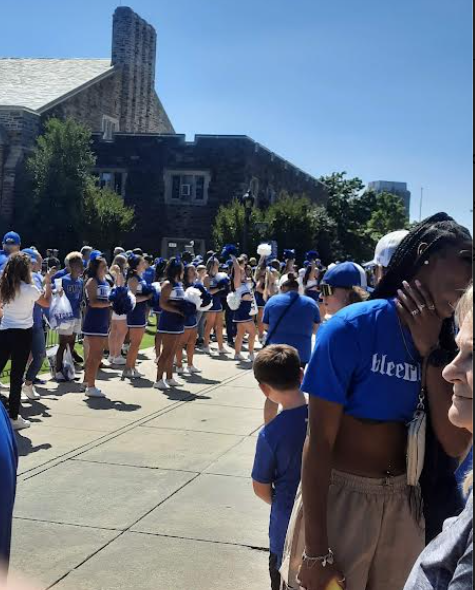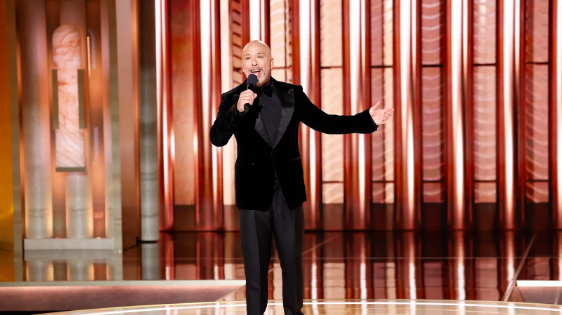Left-leaning news is not innocent
Sensationalist coverage is common, irresponsible, and spreads misinformation
It’s easy to point the finger at Fox News for exaggerating events, fear-mongering, distorting the truth, and spreading false information. I get it. I do it too. Irresponsible journalism is infuriating, and it’s difficult to watch public figures abuse their platforms. However, it is not just right-leaning news sources that foster irresponsible journalistic practices. Left-leaning news outlets (i.e. CNN, New York Times, Washington Post, etc.) are also perpetrators of sensationalism, even if they are generally morally sound in their article content.
Jones is, for the most part, a politically left-leaning school, and as a result, students may neglect to hold left-leaning sources accountable for their journalistic mistakes. Sure, your favorite left-leaning newspaper may publish articles with credible information, but their headlines can still foster irrational fear towards COVID-19 vaccines, spread misinformation to ‘readers’ (be honest: when was the last time you read a news article in its entirety?), and contain incomplete and therefore misleading information.
Let’s take a look at some recent NYT vaccine coverage. Consider the headline: “C.D.C. is investigating nearly 800 cases of rare heart problems following immunization.” Though I respect most NYT content, I believe the author’s headline choice is an example of irresponsible sensationalism. It concerns me that an author would choose to write this headline during a very serious public health crisis where accurate information is paramount.
My fear is that many readers will walk away with the false impression that vaccines are often linked to heart problems, leading them to develop an irrational fear of the safe, effective vaccines currently available to the American public.
Now consider this line at the beginning of the article: “Not all of the cases are likely to be verified or related to vaccines, and experts believe the benefits of immunization far outweigh the risks of these rare complications.”
This is a great line! It accurately describes the nuance of the situation: though there are extremely rare cases where vaccines are linked to heart problems, vaccines are still a great way to avoid developing a serious or life-threatening case of COVID-19.
My question is this: why wasn’t that sentiment emphasized in the article’s headline, which many news consumers likely internalize without closely reading the following article?
From my perspective, the journalism industry’s number one flaw is that news outlets make a profit per article click. The Onion (brilliant satirical news outlet) illustrates this beautifully in their pinned Tweet: “Report: We Don’t Make Any Money If You Don’t Click the F****** Link.” If readers don’t actually click on the headlines they find, news outlets, CNN and Fox News alike, don’t get their earnings, essentially incentivizing sensationalism. Journalists may feel they have no choice but to write click-bait headlines, because if they don’t, making a living gets harder.
Considering this fundamental industry flaw, is it the reader’s responsibility to recognize bias and sensationalism? Or is it the journalist’s responsibility to prioritize integrity, objectivity, and accuracy in their headlines and writing, even if that means sacrificing profit?
Reflection on both ends would go a long way. Since a majority of Jones students identify with left-leaning political ideology, I think it is a common pitfall to just believe everything that comes from sources that align with our own political views. Our generation gets much of its information from the internet, and we must be careful to consume it critically. I appreciate and admire the commitment Jones students have to civic action, but worry that students embark on social justice journeys ill-informed of the nuance of the social issues precisely because news media is also not not considering nuance; social media and modern news sources largely cater specific audiences by representing a narrow range of narratives.
We as Jones students, community members, and people who are generally trying to make the world a better place, have a responsibility to read and spread information responsibly. Many Jones students consider themselves activists; these students especially have a responsibility to carefully inform themselves of the issues they speak out on. My wish is that the journalism industry will move away from sensationalism and recenter itself to prioritize truth. It is inevitable that not everyone will consume news critically. That’s just the age we live in. Journalists have a responsibility to meet people where they are at. Everyone needs information, and everyone deserves to have that information presented accurately and with regard for people who depend on it. While that is not the standard in modern journalism, we must continue to recognize misleading information and hold all journalists, regardless of political ideology, accountable.
Graphic by Akira Sinnott ’22

Whitney is excited to continue at the Blueprint as Associate Editor of Print during their senior year at Jones. She also participates in National English...







